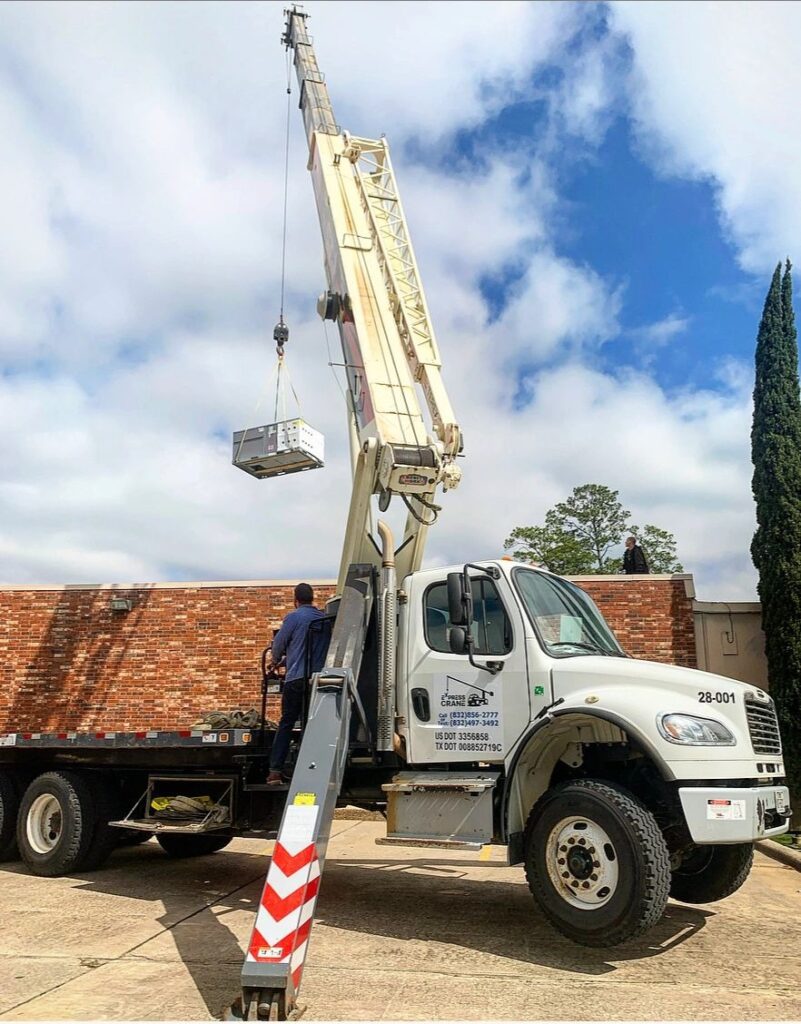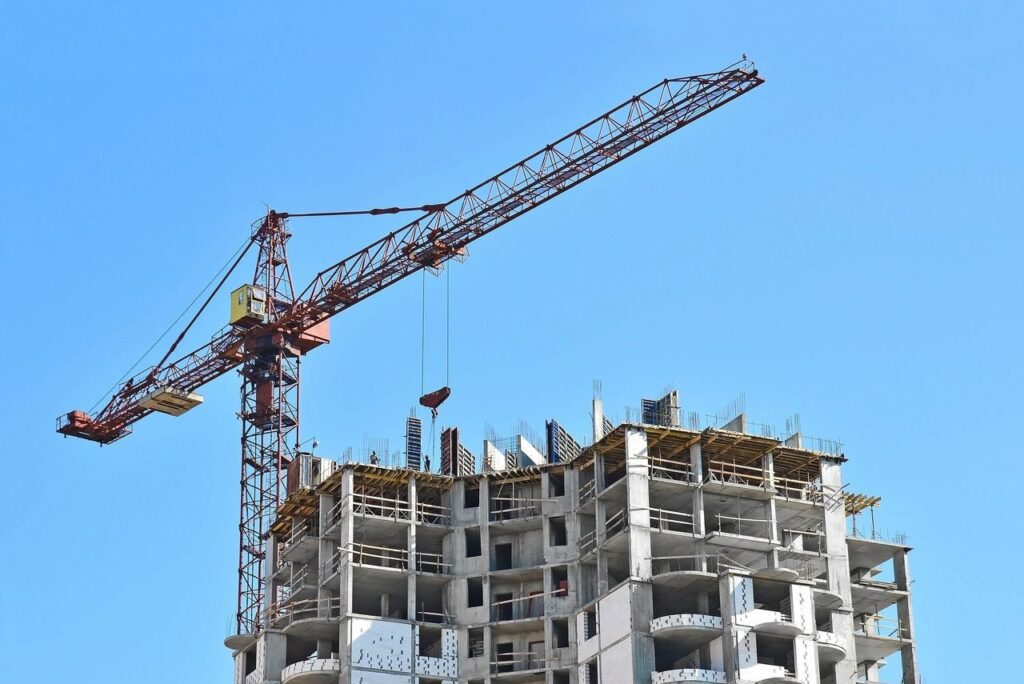What Refinery Operations Are
Refinery operations are associated with refining crude oil into petroleum products such as:
- Gasoline
- Diesel fuel
- Kerosene
- Jet fuel
- Other related derivatives
Refineries convert crude oil into a wide range of components that have different uses in various industries. Some of these components include:
- Naphtha
- Light oils
- Lubricants
- Solvents
- Waxes
- Asphalt
Refineries also produce petrochemicals which are used to manufacture:
- Plastics
- Paints
- Fertilizers
- Adhesives
- Other industrial products
How Cranes Fit Into Refinery Operations
Cranes are one of the most valuable inventions of all time. The advanced & safe refining processes that we see today are not possible without reliable cranes. It is the advancement of cranes that enables smooth heavy-weight lifting in the refining industry. The best part is that nowadays crane companies have a fleet of tech-centric cranes. They can pull tons of weight without any physical involvement. Their cranes are equipped with certified operators. They ensure safe, reliable, and cost-effective operations during the refining process.
Refinery Operation Crane Safety
Refinery and petrochemical facilities are the industry where safety and precise execution are a must. This is to ensure effective production with no damage. This is where crane companies take a stand with their expertise, equipment, and resources. This is to ensure the timely completion of:
- Refinery production
- Maintenance
- Plant-heavy lift work
They maintain the highest safety standards and keep the refinery operations under budget.
Here are some tips on how to stay safe during refinery operations.
Training and Certification
Ensure that all crane operators have undergone proper training. They should have valid certifications to operate the specific type of crane they are handling. Regularly update their training to keep them aware of the latest safety standards.
Pre-Operation Inspection
Before using the crane, conduct a thorough inspection of the equipment. Check for any visible damage, worn-out parts, leaks, or malfunctions. If you find any issues, report them immediately and refrain from using the crane until it gets repaired.
Load Capacity
Never exceed the crane’s maximum load capacity. Refer to the manufacturer’s guidelines and load charts. This will determine the safe working load for different crane configurations.
Clear Communication
Establish clear and concise communication protocols between crane operators and other personnel. Use hand signals, radios, or other approved communication devices to convey instructions effectively.
Proper Rigging
Always use appropriate and well-maintained rigging equipment. Inspect slings, hooks, and chains for any signs of damage or wear before use.
Load Stability
Ensure that the load is balanced and properly secured before lifting. Avoid sudden movements or jerks that could cause the load to swing uncontrollably.
Safe Distance
Establish a safe working distance around the crane during operation. Restrict access to the crane’s swing radius to prevent anyone from getting in the path of the load.
Avoid Overhead Hazards
Be aware of any overhead obstructions, such as power lines or other structures. Maintain a safe distance from them to prevent accidental contact.
Ground Conditions
Check the ground where the crane will be operated. This will ensure it is stable and can support the crane’s weight and load. Use appropriate outriggers, mats, or other stabilizing devices on soft or uneven surfaces.
Wind and Weather Conditions
Monitor weather conditions, especially wind speed, before and during crane operation. High winds can affect the crane’s stability and pose significant risks.
Never Leave Unattended
Never leave a suspended load unattended. A suspended load can become unstable and fall. This can create a significant hazard to personnel and equipment.
Emergency Procedures
Make sure all people involved in the operation are familiar with emergency procedures and evacuation plans. This is important to know in case of accidents or equipment failures.
Maintenance and Inspection
Regularly maintain and inspect the crane to ensure it remains in proper working condition. Follow the manufacturer’s recommended maintenance schedule.
Reporting Incidents
Encourage a safety culture where all near-misses, incidents, and hazards are reported promptly. Investigate any incidents to identify root causes and implement corrective measures.

If you work in the refining industry and want to ensure the precise execution and cost-effective refinery operations in your facility, then consider Express Crane & Rigging to get the most out of crane equipment lifting.
Here’s how Houston rental crane companies ensure smooth & safe refinery operations.
Professional Expertise & Fleet of Cranes for Heavy to Sensitive Equipment Lifting
It is the years of expertise of a trusted crane company in Houston that cut down a load of refinery business. Crane companies have the:
- Resources
- Knowledge of different industrial situations
- Equipment
This is to ensure the turnarounds and safe lifting execution.
Detailed Equipment Lifting Services
A crane company will provide operated rigging & crane rentals to the refinery industrialists. Apart from this, crane companies provide heavy-lift transport support.
Refinery Maintenance & Turnaround
Relocating or placing refining operations required equipment is a challenging process. This is due to the surrounding and congested areas. This is where the quality fleet of Express Crane & Rigging stands out. Whether the requirement is for:
- Expanding the refinery facility
- Replacing or moving large-sized parts
Crane companies focus on minimizing turnaround time and emphasize safety on the premise.
This is how the equipment companies play a vital role in the working operations of the refining industry. To emphasize safety and productivity in your refinery facility, hiring Express Crane & Rigging is an ideal option.

Refinery Operation FAQs
What types of cranes are commonly used in refinery operations?
The most used cranes in refinery operations are mobile cranes, overhead cranes, tower cranes, hoists, and jibs.
What safety precautions do I need to take when operating a crane in a refinery?
- You should make sure that all operators have training and certification for the type of crane they are handling.
- Conduct a pre-operation inspection
- Adhere to the load capacity specifications
- Establish clear communication protocols
- Use appropriate rigging equipment
- Ensure the load is stable and secure
- Maintain a safe distance from overhead hazards
- Check ground conditions for stability
- Monitor wind and weather conditions closely
- Never leave suspended loads unattended
- Have emergency procedures in place
- Regularly maintain and inspect the crane
- Always report any near-misses, incidents, and hazards
What are the benefits of hiring a professional crane company for refinery operations?
Hiring a professional crane company will ensure that all operators:
- Have the necessary training and certifications
- Adhere to safety protocols
- Ensure equipment is well-maintained and inspected
They can provide detailed equipment services as well as maintenance and turnaround support. This will help minimize downtime and maximize productivity in the refinery facility.
Are there any other tips for ensuring safe and efficient equipment lifting services?
Yes, always follow manufacturer guidelines for:
- Crane operation and load management
- Be aware of local regulations regarding crane operations
- Maintain a clean working area by removing debris from around the lift site
- Use tag lines when necessary to control the load
- Always wear protective equipment when operating a crane
Regularly training personnel in safety protocols is also essential for safe refinery operations. Make sure all operators have training and certifications in proper crane operation techniques. Hold regular safety meetings to discuss any job-specific hazards. Changes in regulations that could affect the workplace should also be talked about. Finally, provide refresher courses or additional training as needed.
Following these guidelines and taking the necessary safety precautions, ensures safe and efficient equipment lifting. Hiring a professional crane company is also recommended to get the most out of your lifting needs. Express Crane & Rigging provides a complete crane rental service in Houston. It caters to the refining and petrochemical sectors. Their fleet of cranes and years of expertise help reduce downtime. It also maximizes productivity in refinery operations. With their approach to refinery maintenance & turnaround, they commit to providing safe and efficient equipment lifting services. Contact us today for any of your crane rental needs!
